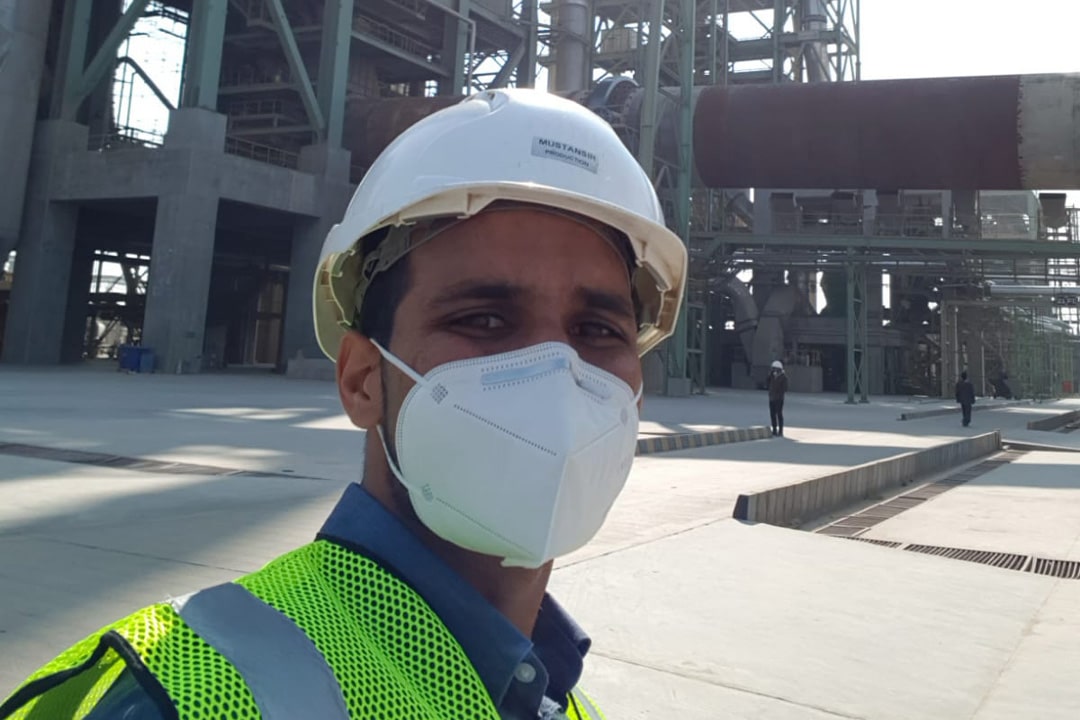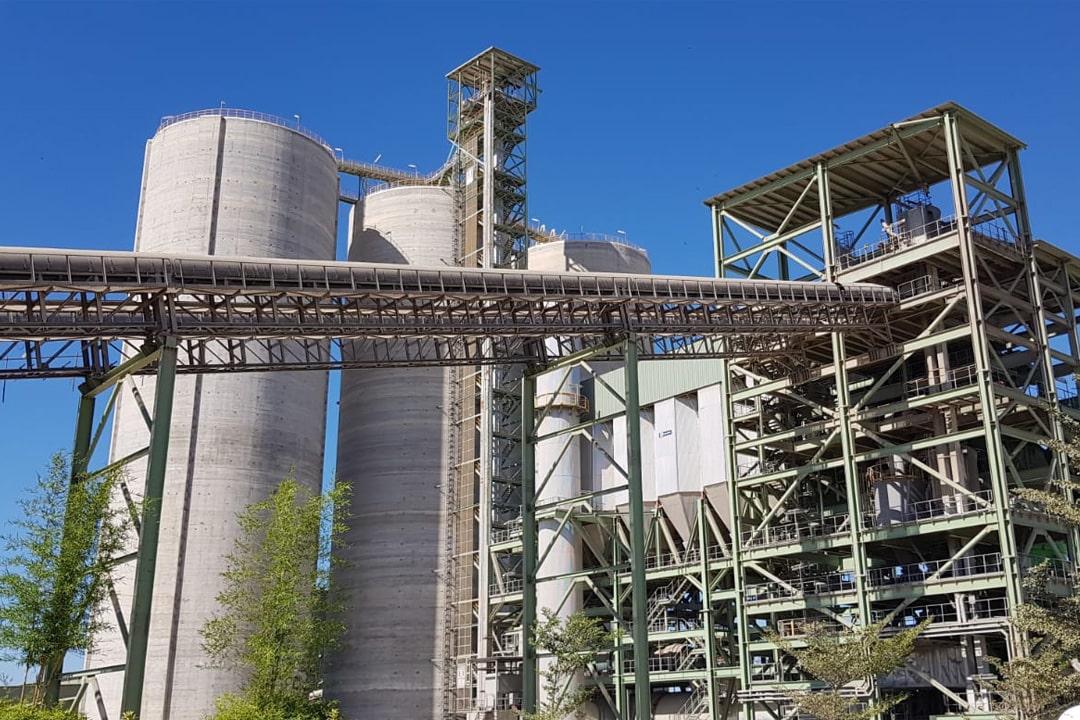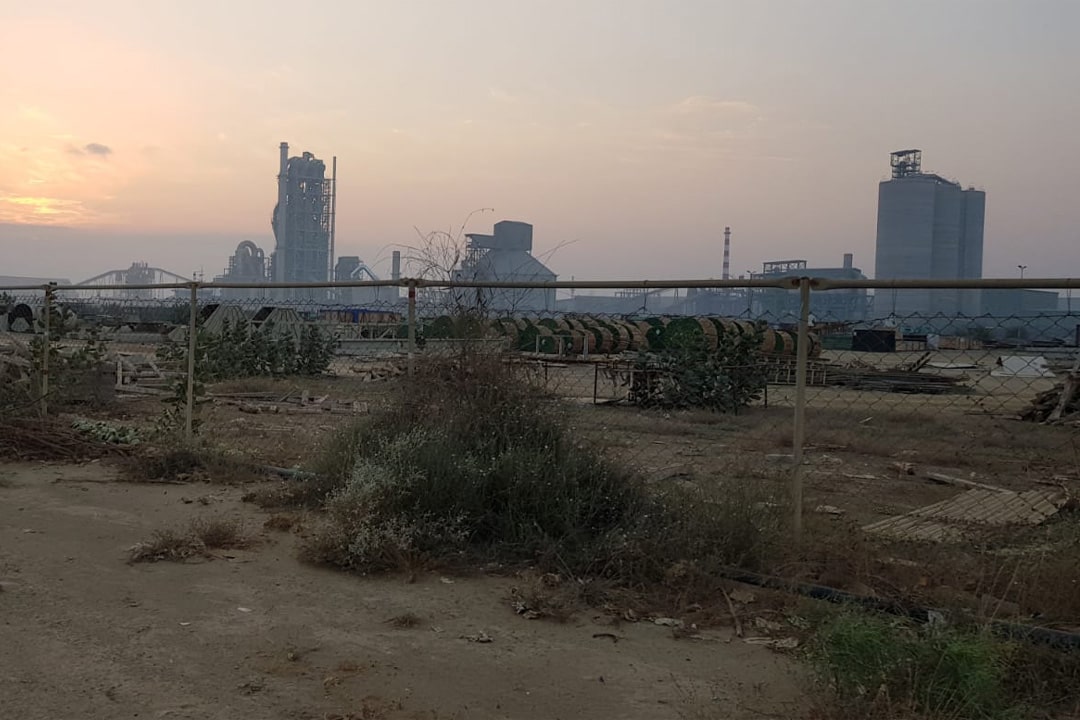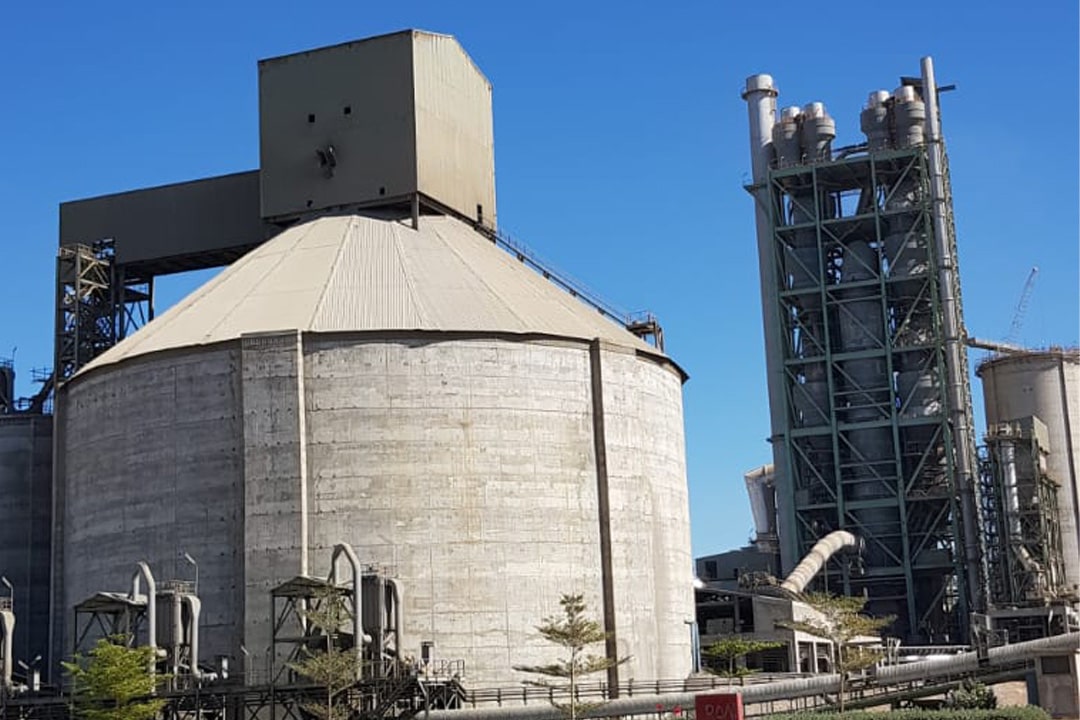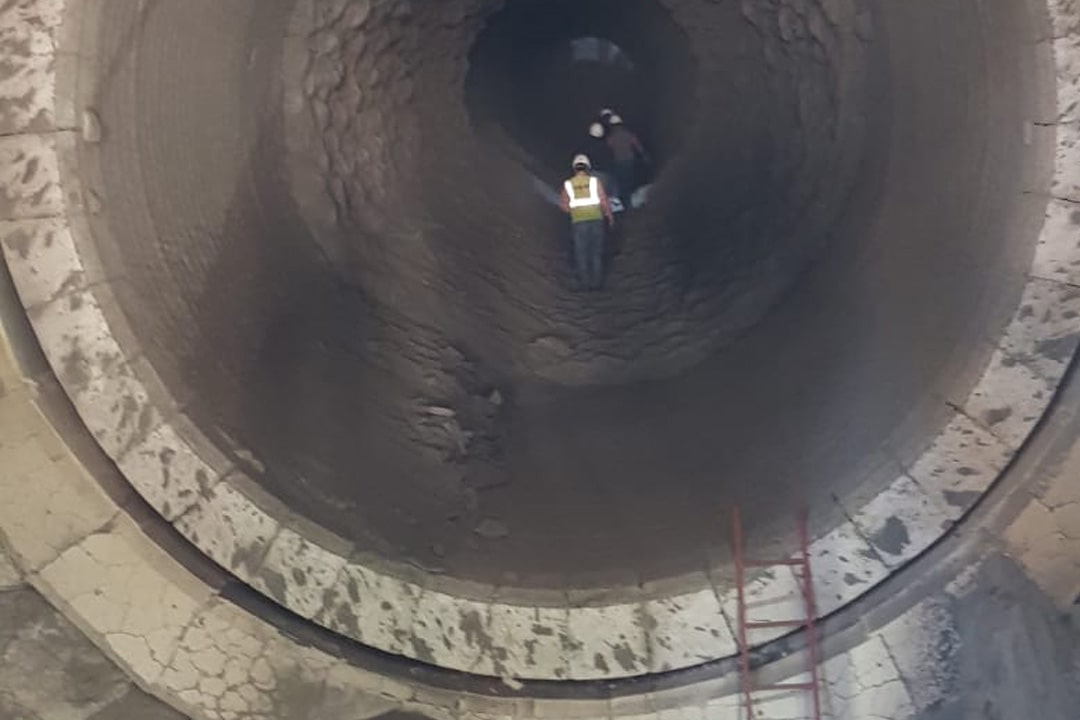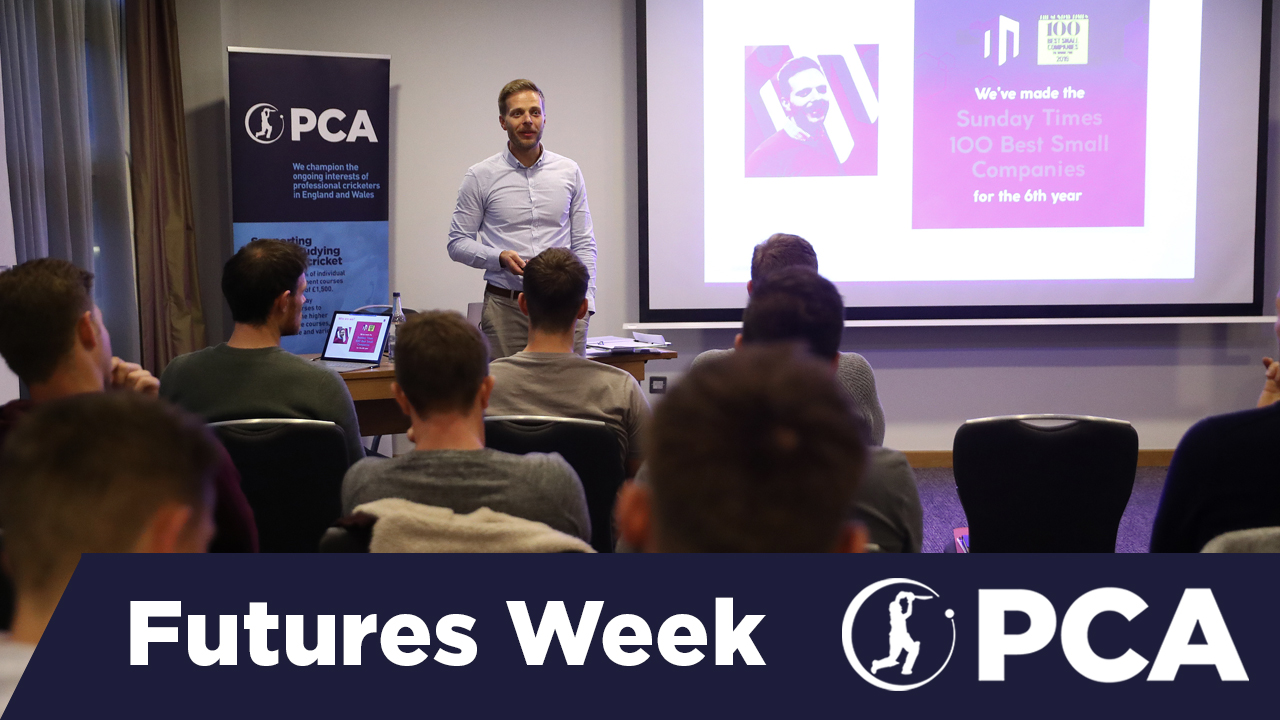PCA PRESS RELEASE
Batsman’s personal development plans not set in stone after experience.
To see more articles, click here
Leicestershire opener Hassan Azad has continued his personal development by completing an intensive six-day work experience placement at the DG Khan Cement plant in Hub, Pakistan.
Azad, 26, cemented himself at the top of the Foxes’ batting order during the 2019 season, winning the PCA Player of the Month award for June of that year, but a mixed 2020 saw him make the decision to return to his native Pakistan to train and play club cricket throughout this winter.
During his visit to the subcontinent, Azad, who has a Chemical Engineering degree from Loughborough University to his name, made use of an existing contact to seek out some part-time work experience at one Pakistan’s largest cement production facilities.
Speaking to PCA Lead Personal Development Manager Charlie Mulraine, Azad talks us through what he’s been getting up to out in Pakistan, what he’s learned from the experience, and how he plans on keeping his options open when it comes to his personal development…
- Tell us about your intensive work experience at the cement factory in Pakistan.
- It was a fantastic experience. DG Khan Cement is one of the largest producers of cement in Pakistan. The plant in Hub, situated on the border between Sindh and Balochistan, has the largest single kiln production capacity in Asia. The plant produces 9,000 tonnes of cement each day. Reading that number on paper doesn’t really give an indication of what that scale looks like in reality – it’s massive! The kiln itself has a diameter of 9m and is 69m long, a decent sized boundary at a cricket ground. I consider myself lucky to have had the opportunity to go inside the kiln and cooler during a plant shutdown.
- They are industry leaders in terms of the technology and the expertise of the staff. As a recent chemical engineering graduate, practical experience is gold dust. The opportunity to get one-on-one time with engineers at the forefront of the industry went far beyond my expectations. I am extremely grateful to everyone at DG Hub for going out of their way to educate me.
- What did it involve?
- It was a structured program. During the day, I shadowed process engineers and operators in different departments to get a brief overview of the entire process. It’s a complex multi-stage process involving a variety of operations from mining and blasting to remove the raw materials from the nearby quarry, crushing and milling to reduce the size of the materials as well as pyro processing through a series of gas cyclones and the kiln itself. I also spent some time in the quality control department to get an overview of the measures used to control the process as well as getting insight into the logistical challenges of storage and transport at the packing plant.
- In the evenings, I would spend a few hours going into the theoretical and mathematical elements with Mr. Abdul Rehman, the production manager, who knows the process inside out and has a passion for teaching. The time with him was valuable as he could explain the rationale behind engineering and management decisions as well as the nuts and bolts of the process itself. For example, I learnt that the colour of cement is made darker in response to the false perception that darker cement has greater strength. Though based on a misconception, the higher demand for dark cement makes it worthwhile to adapt the process to meet the need.
- What tasks did you perform?
- It was more of an educational experience for me. I was given the opportunity to perform heat and mass balances on the kiln and cooler, techniques usually performed by chemical engineers. I must also submit a formal report showing what I learnt but both these exercises were designed to aid my learning. Unfortunately, without having undergone any formal training on company procedures and standards, I couldn’t take on any real responsibility.
- Who were you interacting with?
- Apart from tuition in the evenings with Mr. Rehman, I spent most of my time shadowing Mr. Abdul Aleem, the deputy production manager who is a skilled chemical engineer. He showed me the major process equipment and how it works as well as an overview of the process itself. I also had the opportunity to interact with the head of the mining department, kiln operators, shift engineers, technicians in the quality control department, electrical engineers, instrumentation engineers and control engineers.
- How did you set that up and what was your reasoning behind it?
- One of our family friends, Dr Arif Bashir, is a senior manager at DG Khan Cement. Since he started out as a chemical engineer, I asked him for some career advice on his last visit to the UK a couple of years ago. At the time, the plant in Hub was under construction under his supervision and he invited me to come and visit. Since I was still at university and busy with cricket during the summer, I couldn’t take him up on the offer.
- Having had a disappointing truncated 2020 season, I felt motivated to train hard during the winter. However, the second Coronavirus wave loomed large and with question marks around indoor training environments, warm weather training in Pakistan seemed like a good option.
- The free time during lockdown also provided an opportunity to think about what I wanted from life outside of cricket. I have always enjoyed having another focus and having had a decent break after my degree, I wanted to continue my personal development. I also think it is generally a good idea for professional sportspeople to have a back-up plan as you’re so reliant on your body to earn a living. One bad injury or two poor seasons and it could be all over!
- Since I was going to be in Karachi anyway, I decided to reach out to Dr. Bashir to enquire about getting some part-time work experience. He suggested a more structured program where I stayed at the on-site accommodation but as cricket was my main priority, I was initially reluctant. As it happened, I got some bad blisters on my hands three weeks into training and had to take a short break from cricket anyway, so I went to Hub for a week.
- I could immediately see the value in staying on site as I had so many more opportunities to learn. Since the kiln operates 24 hours a day, most of my learning happened after hours when there were less people around so people had the time to explain what was going on.
- What did you learn from the experience?
- Apart from technical knowledge about the process itself, I got some valuable insight into the life of a chemical engineer. Unsurprisingly, technical expertise is only a minor piece of the puzzle. Most of the skill lies in co-ordinating with various departments to achieve a common goal. Much like in cricket, it is the little disciplines that are important for the function of the plant. The everyday checks and routine maintenance are just as crucial as the exciting new technology being commissioned.
- There is a rigorous process in place to make sure every piece of equipment is tested and maintained regularly. The entire plant could break down if this process is compromised.
- I also gained a great respect for the people who work in industry. Some of these guys have been living on-site for years. Often, they have families that live in cities which can be hours away and though they do get time off every couple of months, it is still a duty in terms of time and effort. As professional cricketers, we sometimes forget, or we don’t quite understand what the daily grind means. For me, it was a poignant dose of perspective.
- What’s next for you in terms of personal development?
- I am still on the lookout for work experience wherever I can find it. I have a couple of years of experience in the process industries which is related to my degree but am now looking to try something a little different. To that end, I am currently working on some online courses in programming. I am also on the lookout for some experience in law. The aim is to try as many different things as possible to find something that fits. Hopefully, I can improve my skills in the process and make myself more employable!
PCA VIDEO
Future's bright for PCA members
Professional cricketers past and present discuss importance of planning ahead...

